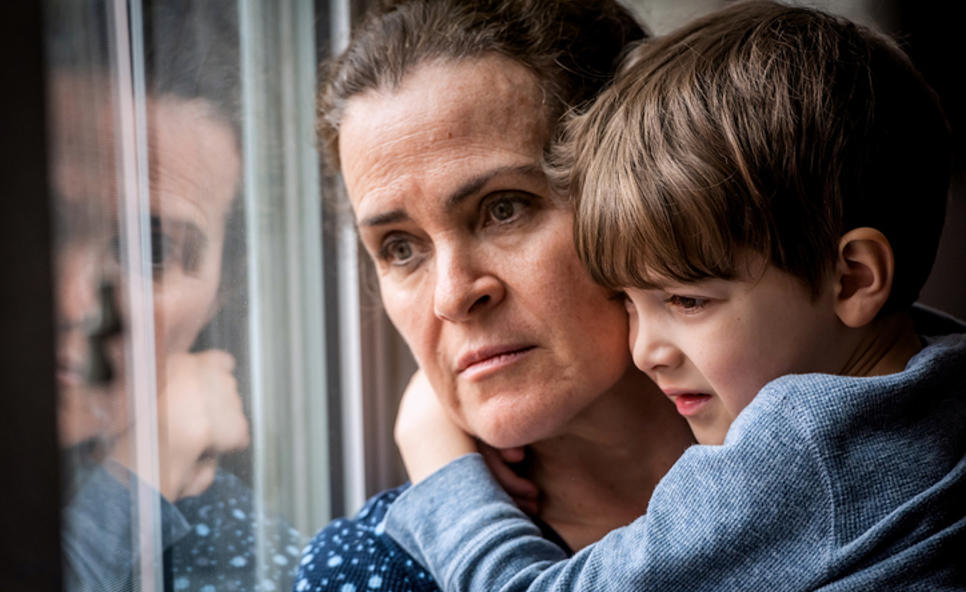Before anyone had even heard of Covid-19, gains in life expectancy – a key measure of our health – had already started to stall while health inequalities were widening after a decade of austerity.
The pandemic made matters substantially worse, and the ongoing cost-of-living crisis is likely to mean even more sickness and ill health this winter and beyond. The country is getting sicker, and the Government isn’t doing enough about it.
Despite a welcome decision to uprate benefits in line with inflation, the number of people experiencing poverty is still predicted to hit record highs in the coming months. The government have allocated additional funding for the NHS, social care, and schools, but other public services of vital importance to health are left open to cuts in years to come.
The promised plan to tackle health inequalities seems unlikely to be published, and policies to reduce high rates of smoking and obesity have either been delayed or are at risk of being eroded.
Urgent action is needed
The BMA is calling for the UK government to act to protect the nation’s health. In particular:
- We want to see people’s economic security protected. No one should be left unable to afford a healthy life.
- We want to see our public services protected. Public services must be properly funded, not eroded.
- We want to see the protection and introduction of policies that keep us well. There must be no more delays to the policies that prevent and tackle ill health.
To find out more, read our new report.

A tale of one city
The cost-of-living crisis is spiralling and Government ministers are proposing further spending cuts and pay restraint in a country which has already been through more than a decade of austerity. Peter Blackburn investigates the effects of budget cuts and squeezed finances on the health of communities in Nottingham
Why doctors are speaking out
The government’s policy agenda is deeply concerning to doctors, who see the implications in their day-to-day work. Doctors are seeing patients in very difficult circumstances, with health problems stemming from issues such as cold, damp housing, a lack of nutritious food, and money worries. While doctors can treat the symptoms, too often they must send patients back to the situation that made them ill in the first place.
To illustrate the scale of the problem, the BMA has been collecting testimony from doctors across the country. One General Surgeon from Scotland, who wishes to remain anonymous, told us about a patient who sought medical help for acute pain, the source of which was proving illusive. During the consultation, the patient ‘broke down’.
They started telling me about being unable to cope, having no money, and being in despair because they had paid for transport to the hospital and were leaving still in pain. They reported that they weren’t sure where their next meal was coming from and suicidal ideation due to bills.A General Surgeon in Scotland
Another patient, who had turned up to the clinic with sepsis, described how they had been in ‘agony for quite a while but they were unable take time off work to attend the GP, as their income was precarious’.
The emotional toll these types of patient interactions have are unmeasurable, and since starting as a resident doctor, has exponentially worsened.A General Surgeon in Scotland
A GP from Sheffield, meanwhile, reported seeing large increases in obesity, diabetes and fatter liver disease in their practice, yet being unable to support many to make lifestyle changes that would prevent further illness. Poverty, the cost of living and long working hours are making it very difficult for people to exercise and eat healthily.
[Some patients] can’t afford healthy food and haven’t time to exercise because of the demands of juggling family and work. [These are] essential issues that they have no control over.A GP in Sheffield
The GP described having no time off since becoming a doctor, then having to take a period of leave ‘in part due to workload but also because it was difficult carrying the suffering of so many patients.'
Testimonies like these illuminate how doctors have been picking up the pieces for the government’s failure to improve the nation’s health for too long. With the NHS already facing its worse winter on record, however, this isn’t sustainable. Without further action to stem the rising tide of ill health, the NHS and its workforce will struggle to cope.

Spare us a few minutes
As a doctor, have you personally witnessed the impact of health inequalities in the NHS?
Our commitment to health equality

- Valuing health BMA past president's project
- Mitigating the impact of COVID 19 on health inequalities
- BMA position statement: Homelessness and COVID-19
- An NHS under pressure: data analysis
- Addressing social determinants that influence health
- COVID-19 impact on health inequalities for the public inquiry
- Reducing health inequalities in your local area: a toolkit for clinicians
- The cost-of-living crisis is a health crisis: why we are supporting JRF and Big Future
- Care for yourself during the hard times ahead

We're here to stand up for your rights, support you in the workplace and champion the medical profession.

